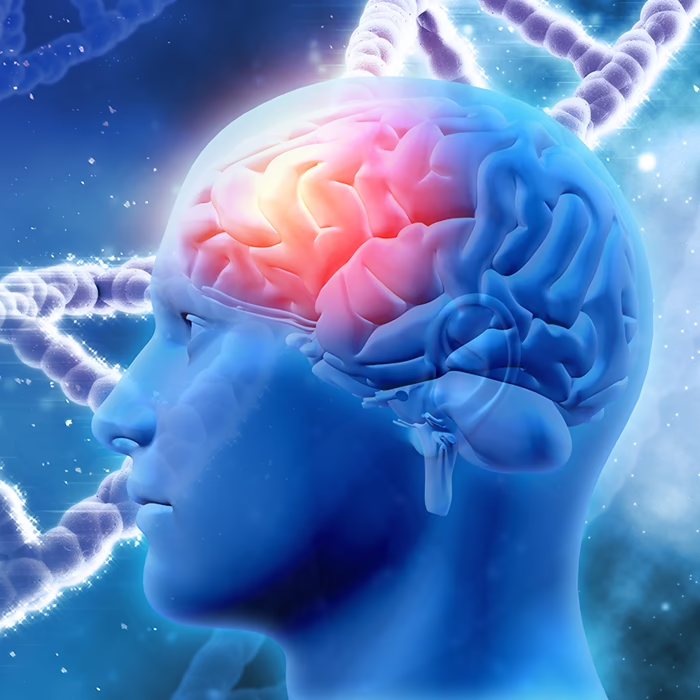
- 3 min read

Low Testosterone Increases Risk of Alzheimers
Scientific research reveals strong connection between low testosterone and Alzheimer disease risk. Learn how hormone optimization may protect brain health and cognitive function.
Updated February 13, 2025
From old site;
September 11, 2021
Update what we know now: The Link Between Testosterone and Neurological Health
The relationship between testosterone levels and neurological health has become increasingly clear through recent research. Low testosterone appears to have significant implications for cognitive decline, particularly in relation to Alzheimer’s disease and type 2 diabetes. Multiple studies have demonstrated testosterone’s crucial role in neuroprotection, specifically through:
- Reducing neuroinflammation
- Scavenging harmful free radicals
- Supporting cognitive function
- Protecting brain tissue integrity
 Research demonstrates testosterone’s neuroprotective properties
Research demonstrates testosterone’s neuroprotective properties
Key Research Findings
Recent studies have revealed several critical connections between testosterone levels and brain health:
Cognitive Performance in Elderly Men
A comprehensive study showed that elderly men with lower endogenous testosterone levels demonstrated poorer cognitive performance compared to those with optimal levels.
Cognitive Performance Study: https://www.eurekaselect.com/155570/article
ALS and Testosterone Connection

Research has identified a potential link between testosterone levels and neurodegenerative conditions like ALS, suggesting hormonal influence on motor neuron health.
Dementia and Alzheimer’s Risk
Multiple studies have established a correlation between low testosterone levels and increased risk of:
- All-cause dementia
- Alzheimer’s disease specifically
- Accelerated cognitive decline
Dementia and Testosterone Research: https://journals.sagepub.com/doi/10.1177/0891988720933351
Expert Perspectives
As noted by leading researcher Christian Pike:
“Our findings strongly suggest that normal age-related testosterone depletion is one of the important changes that promote Alzheimer’s disease in men”
Research on Testosterone and Alzheimer’s: https://pubmed.ncbi.nlm.nih.gov/30632505/
Therapeutic Potential
Recent research suggests that androgen therapy could play a significant role in treating neurodegenerative diseases, offering potential neuroprotective benefits.
Androgen Therapy Research: https://www.sciencedirect.com/science/article/abs/pii/S0149763418309515
Could TRT be a preventative measure?
The growing body of evidence raises important questions about TRT’s potential as a preventative treatment. Current research suggests several potential benefits:
Potential Preventative Benefits
- Reduced neuroinflammation
- Enhanced cognitive function
- Improved brain tissue maintenance
- Better oxidative stress management
- Sustained neuroplasticity
Clinical Considerations
When considering TRT as a preventative measure, several factors should be evaluated:
- Individual Risk Assessment
- Family history of neurodegenerative diseases
- Current testosterone levels
- Age-related decline patterns
- Overall health status
- Treatment Timing
- Early intervention potential
- Age-appropriate hormone optimization
- Progressive monitoring protocols
- Comprehensive Approach
- Integration with other preventative measures
- Lifestyle modifications
- Regular health monitoring
- Cognitive function assessment
Future Research Directions
While current evidence is promising, ongoing research is focusing on:
- Long-term effects of TRT on brain health
- Optimal treatment protocols for prevention
- Patient-specific response patterns
- Risk-benefit profiles for different age groups
Medical Guidance
It’s crucial to emphasize that TRT requires careful medical oversight:
- Comprehensive hormone level testing
- Regular monitoring of cognitive function
- Individualized treatment protocols
- Professional medical supervision
- Regular assessment of treatment efficacy
Healthcare providers should assess:
- Current testosterone levels
- Cognitive function baselines
- Individual risk factors
- Treatment response markers
- Overall health status
Conclusion
The relationship between testosterone levels and neurological health represents a promising area for preventative medicine. While TRT shows potential as a preventative measure against Alzheimer’s and other neurodegenerative conditions, it requires careful consideration and professional medical guidance. Ongoing research continues to reveal the complex interactions between hormonal health and cognitive function, suggesting that hormone optimization could play a crucial role in maintaining neurological health as we age.
Was this article helpful? Let us know!